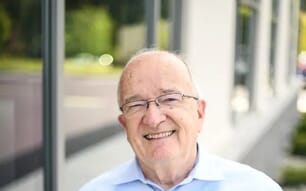The final standards will address the key negative environmental and social impacts associated with salmon farming and allow for the economic viability of the industry, which produces more than 60 per cent of salmon eaten globally today. Impacts addressed through the standards include water pollution, sourcing of feed ingredients, disease transmission between farmed and wild salmon and labor issues on farms.
“Continued transparency and involvement from a broad spectrum of salmon aquaculture industry stakeholders, including retailers, farmers and scientists is needed to ensure the final standards are strong”, said Petter Arnesen of Marine Harvest, who is a member of the Dialogue’s steering committee.
Feedback received during the 30 day public comment period will be used by the Dialogue’s nine-person Steering Committee to finalise the standards in the third quarter of 2011. The standards-development process has included more than 500 farmers, conservationists, government officials, academics and other salmon farming stakeholders.
“We’ve already taken one giant step forward with the 400 pages of input received during the first comment period last year”, said Katherine Bostick of World Wildlife Fund (WWF), who coordinates the Dialogue.
Significant changes were made to the proposed standards as a result of the public comment provided on the initial draft. Among the changes are greater emphases on minimising parasiticide use, clearer standards related to responsible sourcing of feed ingredients, and requirements that address key negative impacts of smolt production. Additionally, the revised standards seek to protect wild fish from on-farm diseases and parasites by requiring farms to operate in an area-based management system, monitor wild fish and incorporate wild monitoring results into farm management. To encourage transparency and learning, the standards require public disclosure of sea lice monitoring data on the farm and in the wild.
”No other voluntary salmon standard moves the industry forward in this way”, Mr Bostick said.
The Dialogue standards will be given to the Aquaculture Stewardship Council (ASC) to manage when that entity is in operation later this year. WWF is helping to create the ASC, which will be responsible for working with independent, third party entities to certify farms that are in compliance with the standards being developed by participants of the eight Aquaculture Dialogues.
The Steering Committee that manages the salmon Dialogue includes representatives from Canadian Aquaculture Industry Alliance, Coastal Alliance for Aquaculture Reform, Fundación Terram, Marine Harvest, Norwegian Seafood Federation, Pew Environment Group, SalmonChile, Skretting, and WWF. The Committee urges stakeholders to provide constructive feedback on the document, which remains a working draft.
The last public comment period for the draft Salmon Aquaculture Dialogue standards began May 16, 2011 and will end June 14, 2011. For more information about the salmon Dialogue and to provide feedback during the final public comment period, go to www.worldwildlife.org/salmondialogue.
Salmon Farmers To Have Say On Global Standards
GLOBAL - The final step in the process of creating global standards for salmon farming is now underway as the Salmon Aquaculture Dialogue kicked off the last public comment period for the draft standards.



